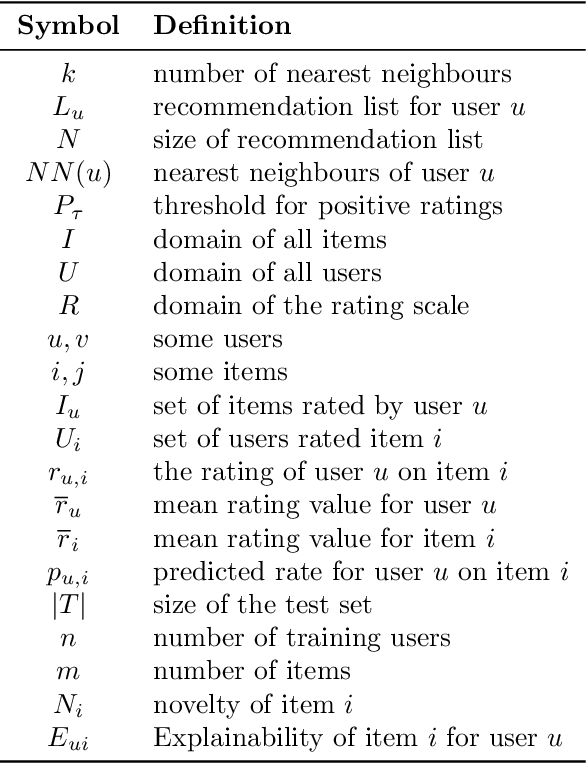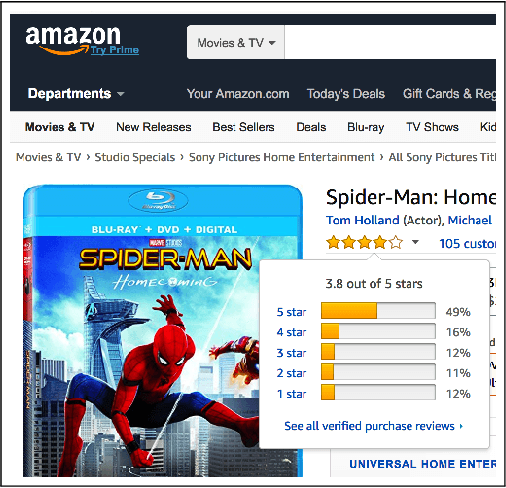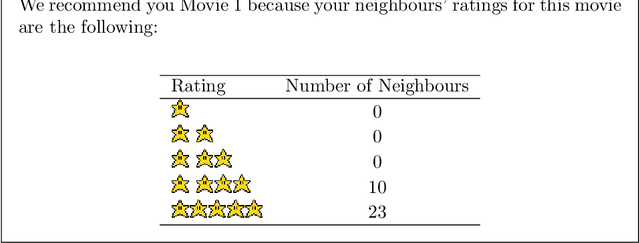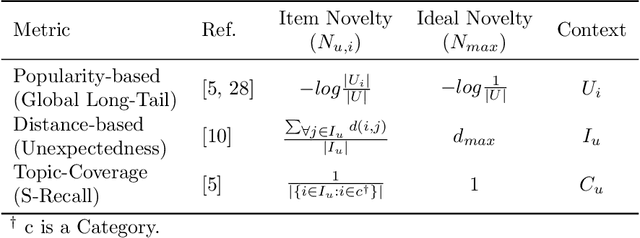Ludovik Coba
Towards a Technical Debt for Recommender System
Nov 14, 2023Abstract:Balancing the management of technical debt within recommender systems requires effectively juggling the introduction of new features with the ongoing maintenance and enhancement of the current system. Within the realm of recommender systems, technical debt encompasses the trade-offs and expedient choices made during the development and upkeep of the recommendation system, which could potentially have adverse effects on its long-term performance, scalability, and maintainability. In this vision paper, our objective is to kickstart a research direction regarding Technical Debt in Recommender Systems. We identified 15 potential factors, along with detailed explanations outlining why it is advisable to consider them.
Adversarial Sleeping Bandit Problems with Multiple Plays: Algorithm and Ranking Application
Jul 27, 2023Abstract:This paper presents an efficient algorithm to solve the sleeping bandit with multiple plays problem in the context of an online recommendation system. The problem involves bounded, adversarial loss and unknown i.i.d. distributions for arm availability. The proposed algorithm extends the sleeping bandit algorithm for single arm selection and is guaranteed to achieve theoretical performance with regret upper bounded by $\bigO(kN^2\sqrt{T\log T})$, where $k$ is the number of arms selected per time step, $N$ is the total number of arms, and $T$ is the time horizon.
Personalised novel and explainable matrix factorisation
Jul 25, 2019



Abstract:Recommendation systems personalise suggestions to individuals to help them in their decision making and exploration tasks. In the ideal case, these recommendations, besides of being accurate, should also be novel and explainable. However, up to now most platforms fail to provide both, novel recommendations that advance users' exploration along with explanations to make their reasoning more transparent to them. For instance, a well-known recommendation algorithm, such as matrix factorisation (MF), optimises only the accuracy criterion, while disregarding other quality criteria such as the explainability or the novelty, of recommended items. In this paper, to the best of our knowledge, we propose a new model, denoted as NEMF, that allows to trade-off the MF performance with respect to the criteria of novelty and explainability, while only minimally compromising on accuracy. In addition, we recommend a new explainability metric based on nDCG, which distinguishes a more explainable item from a less explainable item. An initial user study indicates how users perceive the different attributes of these "user" style explanations and our extensive experimental results demonstrate that we attain high accuracy by recommending also novel and explainable items.
 Add to Chrome
Add to Chrome Add to Firefox
Add to Firefox Add to Edge
Add to Edge